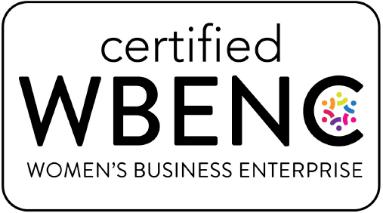Authored by:

Justin R. Muehlmeyer
Patent Attorney
All Posts by Justin
Many of our clients prefer to license their idea or sell it outright rather than commercializing it themselves. However, finding the right purchaser or licensee is not easy and is full of traps. Here are some tips for those of you embarking on the journey of getting a deal for your idea.
Establish a Property Interest in Your Idea
It is essential to file for intellectual property protection of your idea before you attempt to negotiate its sale or licensing. Do not disclose your idea to anyone until you have done so. For ideas that are inventions, this means filing a patent application or “provisional” patent application. An issued patent grants whoever owns the patent (or owns the right to sue for infringement of the patent) the right to exclude others from making, using, offering to sell, or selling the invention. This will result in greater licensing fees to you. Patent owners can expect a 3-7% royalty on sales of a patented or patent-pending invention depending on the industry and many other variables. If your invention is unpatentable, licensing is not the right approach for you, but you may be able to get compensation in other ways that depend on your situation and the nature of the invention.
Identify Potential Licensees and Define Your Invention’s Market
You know the benefits of your invention better than anyone and you know its market, so the hard work of finding who you will license your invention is best done by you. Find as many entities in your invention’s market as possible by attending trade shows, subscribing to relevant magazines and journals, and searching stores and the web. Keep a list of the company names, contacts at the company, what their contact info is, how you contacted them and what you discussed with them.
In this process of finding potential licensees, you may discover competitors. Master your knowledge of the competitor’s products so that you can be an expert in why your invention is valuable in relation to other products in the market. Your expertise of the market will make the difference between a great deal and a mediocre one, or no deal at all.
Have a Well-Developed Prototype and Prepare Negotiating Materials
Who will pay for an idea without knowing whether it works and what its benefits are? Nobody. The more you have developed the invention, the better, so make the best working prototype of the invention that you can. If you yourself can’t make the prototype, hire a professional to make it for you. We often refer our inventors to prototyping professionals and recommend you have the prototype agree to a non-disclosure agreement (“NDA”). A working prototype is essential.
Every inventor thinks their invention is the best thing the industry has seen, but no matter how great your invention is, it will die unless you present your invention in a professional, purposeful, and concise manner. Prepare a one-page brochure emphasizing the benefits of your invention and its value in the market to send to potential licensees. Make it really catch their eye.
Issued patents should be sent to the potential licensee. A pending-patent application can be sent to the potential licensee, but do not send the claims. If potential licensees are given the opportunity to review the claims of a patent application, they can use the claims to argue for a lower royalty, or can design their own competing products to avoid infringement of your claims. Of course if your application has already been published, the claims will be publicly available. For non-provisional patent applications, publication happens automatically 18 months after filing unless you request non-publication upon filing. If publication has occurred, do not tell the potential licensee the application’s filing number and date. Provisional patent applications are not published and are kept secret in the patent office.
Make First Contact
Send your one-page invention brochure to the contacts you have found with a cover letter reminding them of any contact you have made with them and requesting a meeting to discuss the opportunity to license it. For potential licensees at large companies, it may take some time to get this information to the right people, but stay involved and track any and all contact in your list.
While it is preferable to require the potential licensee to sign a Non-Disclosure Agreement, it is rare a company agrees to confidentiality. Keep in mind at all times that anyone you discuss your invention with is just as likely to be your competitor as they are your licensee. Maintain a record of what you disclosed to them.
If you are lucky enough to have gone so far as catching the attention of the potential licensee’s decision makers, we highly recommend getting us involved at that point. Licensing negotiations are inherently legal, requiring substantive knowledge of the law surrounding the IP at issue. Before negotiation, be prepared to discuss with us what you expect to get from a license.
Best of Luck!
As always, we at Peacock Law P.C. are here to help you in this complex process. Generating value from your great ideas is our mission.
Have more questions, or seeking counsel? Visit our contact form or give us a call, toll-free, at 1-877-998-1506 today.


